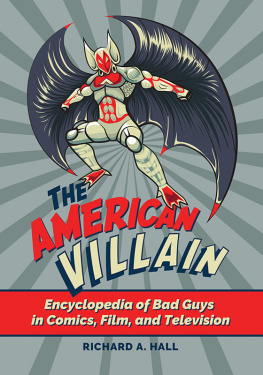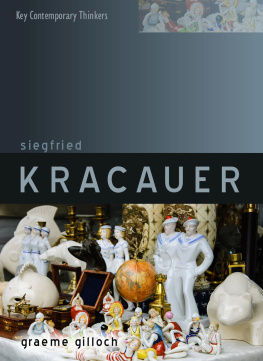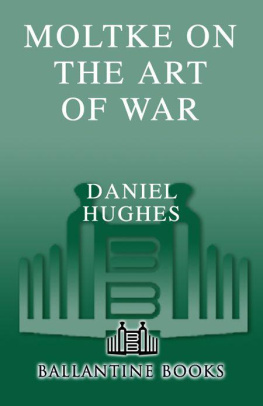Johannes von Moltke - Siegfried Kracauers American writings: essays on film and popular culture
Here you can read online Johannes von Moltke - Siegfried Kracauers American writings: essays on film and popular culture full text of the book (entire story) in english for free. Download pdf and epub, get meaning, cover and reviews about this ebook. City: Berkeley, year: 2012, publisher: University of California Press, genre: Science. Description of the work, (preface) as well as reviews are available. Best literature library LitArk.com created for fans of good reading and offers a wide selection of genres:
Romance novel
Science fiction
Adventure
Detective
Science
History
Home and family
Prose
Art
Politics
Computer
Non-fiction
Religion
Business
Children
Humor
Choose a favorite category and find really read worthwhile books. Enjoy immersion in the world of imagination, feel the emotions of the characters or learn something new for yourself, make an fascinating discovery.
- Book:Siegfried Kracauers American writings: essays on film and popular culture
- Author:
- Publisher:University of California Press
- Genre:
- Year:2012
- City:Berkeley
- Rating:5 / 5
- Favourites:Add to favourites
- Your mark:
- 100
- 1
- 2
- 3
- 4
- 5
Siegfried Kracauers American writings: essays on film and popular culture: summary, description and annotation
We offer to read an annotation, description, summary or preface (depends on what the author of the book "Siegfried Kracauers American writings: essays on film and popular culture" wrote himself). If you haven't found the necessary information about the book — write in the comments, we will try to find it.
Siegfried Kracauers American writings: essays on film and popular culture — read online for free the complete book (whole text) full work
Below is the text of the book, divided by pages. System saving the place of the last page read, allows you to conveniently read the book "Siegfried Kracauers American writings: essays on film and popular culture" online for free, without having to search again every time where you left off. Put a bookmark, and you can go to the page where you finished reading at any time.
Font size:
Interval:
Bookmark:
WEIMAR AND NOW: GERMAN CULTURAL CRITICISM
Edward Dimendberg, Martin Jay, and Anton Kaes, General Editors
1. Heritage of Our Times, by Ernst Bloch
2. The Nietzsche Legacy in Germany, 18901990, by Steven E. Aschheim
3. The Weimar Republic Sourcebook, edited by Anton Kaes, Martin Jay, and Edward Dimendberg
4. Batteries of Life: On the History of Things and Their Perception in Modernity, by Christoph Asendorf
5. Profane Illumination: Walter Benjamin and the Paris of Surrealist Revolution, by Margaret Cohen
6. Hollywood in Berlin: American Cinema and Weimar Germany, by Thomas J. Saunders
7. Walter Benjamin: An Aesthetic of Redemption, by Richard Wolin
8. The New Typography, by Jan Tschichold, translated by Ruari McLean
9. The Rule of Law under Siege: Selected Essays of Franz L. Neumann and Otto Kirchheimer, edited by William E. Scheuerman
10. The Dialectical Imagination: A History of the Frankfurt School and the Institute of Social Research, 19231950, by Martin Jay
11. Women in the Metropolis: Gender and Modernity in Weimar Culture, edited by Katharina von Ankum
12. Letters of Heinrich and Thomas Mann, 19001949, edited by Hans Wysling, translated by Don Reneau
13. Empire of Ecstasy: Nudity and Movement in German Body Culture, 19101935, by Karl Toepfer
14. In the Shadow of Catastrophe: German Intellectuals between Apocalypse and Enlightenment, by Anson Rabinbach
15. Walter Benjamins Other History: Of Stones, Animals, Human Beings, and Angels, by Beatrice Hanssen
16. Exiled in Paradise: German Refugee Artists and Intellectuals in America from the 1930s to the Present, by Anthony Heilbut
17. Cool Conduct: The Culture of Distance in Weimar Germany, by Helmut Lethen, translated by Don Reneau
18. In a Cold Crater: Cultural and Intellectual Life in Berlin, 19451948, by Wolfgang Schivelbusch, translated by Kelly Barry
19. A Dubious Past: Ernst Jnger and the Politics of Literature after Nazism, by Elliot Y. Neaman
20. Beyond the Conceivable: Studies on Germany, Nazism, and the Holocaust, by Dan Diner
21. Prague Territories: National Conflict and Cultural Innovation in Franz Kafkas Fin de Sicle, by Scott Spector
22. Munich and Memory: Architecture, Monuments, and the Legacy of the Third Reich, by Gavriel D. Rosenfeld
23. The Ufa Story: A History of Germanys Greatest Film Company, 19181945, by Klaus Kreimeier, translated by Robert and Rita Kimber
24. From Monuments to Traces: Artifacts of German Memory, 18701990, by Rudy Koshar
25. We Werent Modern Enough: Women Artists and the Limits of German Modernism, by Marsha Meskimmon
26. Culture and Inflation in Weimar Germany, by Bernd Widdig
27. Weimar Surfaces: Urban Visual Culture in 1920s Germany, by Janet Ward
28. Graphic Design in Germany: 18901945, by Jeremy Aynsley
29. Expressionist Utopias: Paradise, Metropolis, Architectural Fantasy, by Timothy O. Benson, with contributions by Edward Dimendberg, David Frisby, Reinhold Heller, Anton Kaes, and Iain Boyd Whyte
30. The Red Count: The Life and Times of Harry Kessler, by Laird M. Easton
32. The Dark Mirror: German Cinema between Hitler and Hollywood, by Lutz Koepnick
33. Rosenzweig and Heidegger: Between Judaism and German Philosophy, by Peter Eli Gordon
34. The Authority of Everyday Objects: A Cultural History of West German Industrial Design, by Paul Betts
35. The Face of East European Jewry, by Arnold Zweig, with fifty-two drawings by Hermann Struck. Edited, translated, and with an introduction by Noah Isenberg
36. No Place Like Home: Locations of Heimat in German Cinema, by Johannes von Moltke
37. Berlin Alexanderplatz: Radio, Film, and the Death of Weimar Culture, by Peter Jelavich
38. Berlin Electropolis: Shock, Nerves, and German Modernity, by Andreas Killen
39. A Concise History of the Third Reich, by Wolfgang Benz, translated by Thomas Dunlap
40. Germany in Transit: Nation and Migration, 19552005, edited by Deniz Gktrk, David Gramling, and Anton Kaes
41. Weimar on the Pacific: German Exile Culture in Los Angeles and the Crisis of Modernism, by Ehrhard Bahr
42. The 1972 Munich Olympics and the Making of Modern Germany, by Kay Schiller and ChristopherYoung
43. Berlin Psychoanalytic: Psychoanalysis and Culture in Weimar Republic Germany and Beyond, by Veronika Fuechtner
44. Cinema and Experience: Siegfried Kracauer, Walter Benjamin, and Theodor W. Adorno, by Miriam Bratu Hansen
45. Siegfried Kracauers American Writings: Essays on Film and Popular Culture, edited by Johannes von Moltke and Kristy Rawson
Siegfried Kracauers American Writings
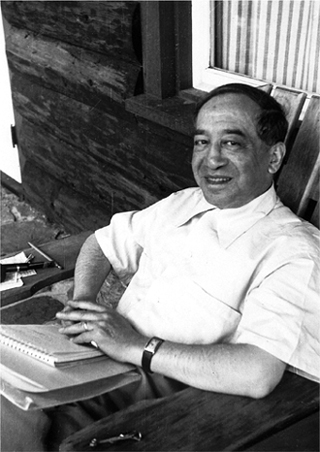
Siegfried Kracauer on vacation, early 1950s. Courtesy of Deutsches Literaturarchiv, Marbach.
Like Siegfried Kracauers own multidisciplinary endeavors, Kracauer scholarship has proliferated in recent years in many directions. But no matter how widely they range, all attempts to situate Kracauer as a cultural critic, a film theorist, a journalist, a novelist, an architect, and a philosopher ultimately come under the gravitational pull of what is undoubtedly the center of any work on Kracauer: the German literary archives nestled in the hills above the Neckar in Marbach. For an editorial project like ours, this gravitational pull is particularly strong, and we submitted to it more than willingly. Our first debt of gratitude, therefore, is to the Deutsches Literaturarchiv and its knowledgeable, gracious, ever helpful staff. We are likewise indebted to the other institutions at which we conducted research for this volume: the Center for Jewish History, the Schlesinger Library at Harvard University, the Sterling Memorial Library at Yale University, and the New York Public Library.
For their input, suggestions, and assistance, we would like to thank Kerstin Barndt, Nathaniel Brennan, Gerd Gemnden, Noah Isenberg, and Dana Polan. We owe a particular debt of gratitude to the late Miriam Hansen for her encouragement and endorsement of this project at a critical juncture. Kracauer scholarship will forever remain in debt to her work.
At Michigan, our projects germination benefited from the inspired interest of Andrew Covert and proceeded with help from Kristin Hengtgen and M.-Niclas Heckner. The University of Michigan generously provided funding supportour thanks go to the Rackham Graduate School for the Spring/Summer Research Grant that enabled the initiation of the project; to the Undergraduate Research Opportunity Program for funding Kristen Hengtgens editorial assistance; to the Office of the Vice President for Research for assisting in funding this publication; to the College of Literature, Science, and the Arts for much-needed release time; and to the chairs of the German and Screen Arts & Cultures Departments, Scott Spector and Ab Markus Nornes, for their support.
Work on this edition was supported by a fellowship from the Alexander-von-Humboldt Foundation, which provided research and writing time in affiliation with the Free University of Berlin, where we would particularly like to thank Gertrud Koch and Hermann Kappelhoff.
Reconstructing the English language rights for Kracauers work constituted a significant aspect of this project. Even though work remains to be done in this area for future editions, we are grateful for the patient help we received from various parties, including the now-defunct New York Association for New Americans (NYANA), Petra Hardt of the Suhrkamp Verlag, and Ingrid Belke at the Deutsches Literaturarchiv.
Next pageFont size:
Interval:
Bookmark:
Similar books «Siegfried Kracauers American writings: essays on film and popular culture»
Look at similar books to Siegfried Kracauers American writings: essays on film and popular culture. We have selected literature similar in name and meaning in the hope of providing readers with more options to find new, interesting, not yet read works.
Discussion, reviews of the book Siegfried Kracauers American writings: essays on film and popular culture and just readers' own opinions. Leave your comments, write what you think about the work, its meaning or the main characters. Specify what exactly you liked and what you didn't like, and why you think so.

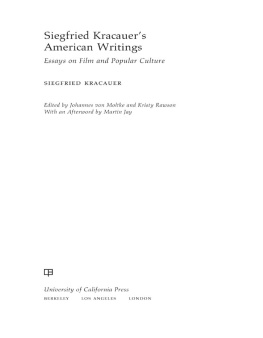
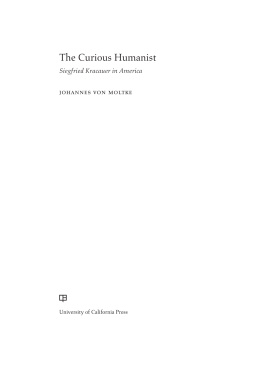

![David Schmid (editor) - Violence in American Popular Culture [2 volumes]](/uploads/posts/book/262757/thumbs/david-schmid-editor-violence-in-american.jpg)
